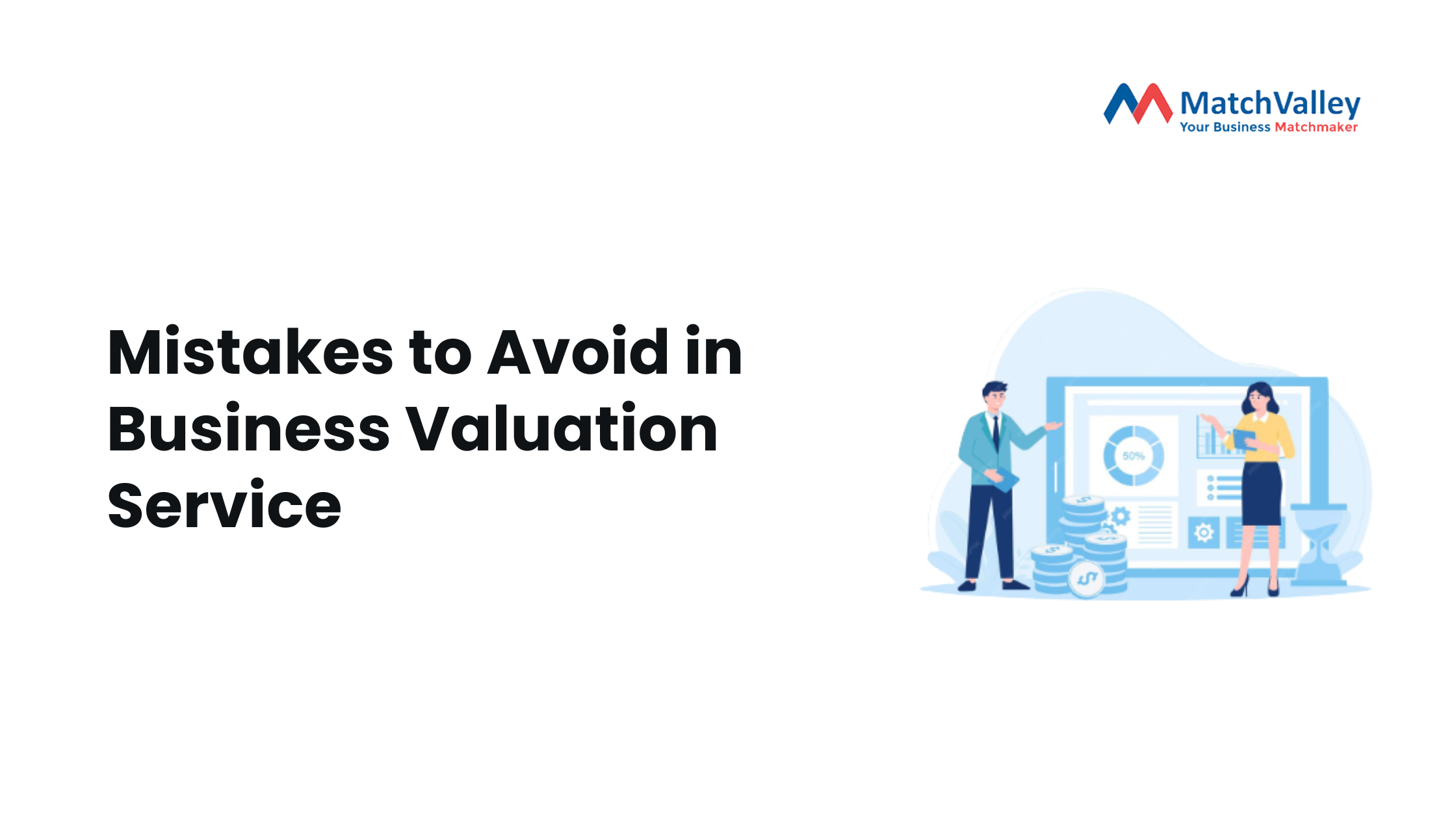Business Valuation Service
Business valuation is something every company is going to have to do at some point or another, whether you’re selling your company, capital raising, financing, or succession planning. Good valuation is not a matter of plugging numbers into the formula — it’s meticulous focus on your company’s books, the well-being of the market, industry norm, and prospects for growth. For this reason alone, it could be money well spent to hire a professional business valuations firm.
Despite that, professionally or professionally-less, firm owners and stakeholders ever commit the same mistakes that can get their valuations astray. These mistakes can make firms over-valued or under-valued, and lead to huge financial and strategic consequences.
In this blog, we’ll explore the most common mistakes to avoid when engaging a business valuation service, and how to ensure a more accurate and insightful assessment of your company’s true worth.
- Incomplete and Inaccurate Financial Record Preparation
Filing incomplete or incorrect financial information is the most common business valuation error. Your financial records — cash flow statements, balance sheet, income statements — are the starting point of any appraisal.
Avoid it by:
- Updating all your accounts audited as far as possible
- Having the personal and business expenses well distinguished
- Revealing all the liabilities and debts
- Having open books for a minimum of 3–5 years
An independent appraisal company for the business will also depend a lot on this information to prepare an estimate of your revenues, growth estimates, and match your firm with similar firms.

- Choosing the Wrong Kind of Valuation
Not all businesses are created equal for purposes of valuation. There are numerous different types of valuations, such as:
- Income approach (estimated based on future revenues)
- Market approach (same as similar businesses)
- Asset-based approach (determined by total assets minus liabilities)
Using the incorrect method with your business type or industry will result in a misvalued figure that does not equate to the value of your business.
How to prevent it:
Engage a competent business valuations company with expertise in your industry and who can select the most suitable approach to your case.
- Overestimating Future Projections
While optimism in business is needed, being overly optimistic with your numbers will distort your valuation. Overestimating revenues, underestimating expenses, or estimating too high a growth rate will create a valuation that will fail when subjected to scrutiny — particularly in investor deal talks or due diligence meetings.
Tip: Be conservative and realistic in your estimates. A good business valuation service will scale such estimates to industry standards, prevailing economics, and past performance.
- Failure to Account for Industry Trends and Market Conditions
Valuation is not a one-time endeavor. Competition, market conditions, and what’s happening within your industry all come into play when deciding how valuable your business is. Forgetting these external factors can cause a valuation that doesn’t precisely quantify how much buyers or investors would be willing to pay.
Don’t do this by:
- Staying current on your industry
- Knowing where your company is positioned with respect to your competition
- Appointment of a valuation specialist who considers market factors in his calculation
An owner business valuation specialist firm will weigh current market conditions over for a reasonable and correct valuation.
- Exclusion of Owner-Specific Costs
Single owners mix firm and non-firm funds or remunerate themselves up to the level of non-market value. Unadjusted, they can skew firm profitability to reflect an unsound valuation.

Adjustments are
- Owner compensation at fair market rates
- Unusual or extra expenditures
- Personal expenses are allowed through the business
A comprehensive business valuation service will incorporate these adjustments in an attempt to provide a clearer picture of your business’s normalized earnings.
- Excluding and Valuing Intangible Assets
Intangibles like brand name, relationships with customers, intellectual property, and proprietary processes can add significantly to the worth of a business. Omitting these assets can result in undervaluation.
Ensure your valuation considers:
- Trademarks and patents
- Loyal customer bas
- Software and technology
- Contracts and agreements
Your perfect business valuation service should be comfortable with evaluating tangible and intangible assets.
- Not Valuation as a One-Time Thing
Most businesses don’t think about valuation much unless they are selling. Valuations, however, must be a periodic part of your planning. Valuation every three years or every year helps track performance, enables you to plan for expansion, and keeps you alerted for surprise opportunities or threats.
Tip: Use business valuation as a strategic weapon — rather than a transactional requirement. Your trusted business valuation colleague will assist you in building enduring value by developing core value drivers.
- Engaging an unexperienced or incompetent appraiser
The biggest error is possibly hiring a business valuation firm that does not have the qualification and skills required to do it correctly. All valuation experts are not equal — there are those which are neither certified, industry-aware, nor analytical to do it correctly.
Seek:
- Accreditation (e.g., ASA, CVA, or ABV)
- Industry experience
- Reasonable client references
- Methodology transparency and reporting
Selecting a fine business valuation service may be the contrast between a quality, defensible appraisal and one that will fail to pass.
Conclusion
By avoiding these pitfalls during the valuation process, not only will you save yourself money and time, but you will also have your business fairly and accurately valued. If selling your business, raising capital, or simply need to know where your business stands financially, it is most important that you use the services of a professional business valuation firm.
But remember — it’s a partnership. Prepare your documents, be realistic with your forecasts, and choose a professional who understands both the numbers and the story behind them.
If you’re considering a valuation for your business, now is the time to get it right. Don’t leave such a crucial aspect of your business to chance — make informed decisions with a trusted business valuation service by your side.




